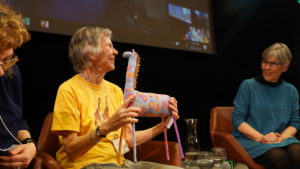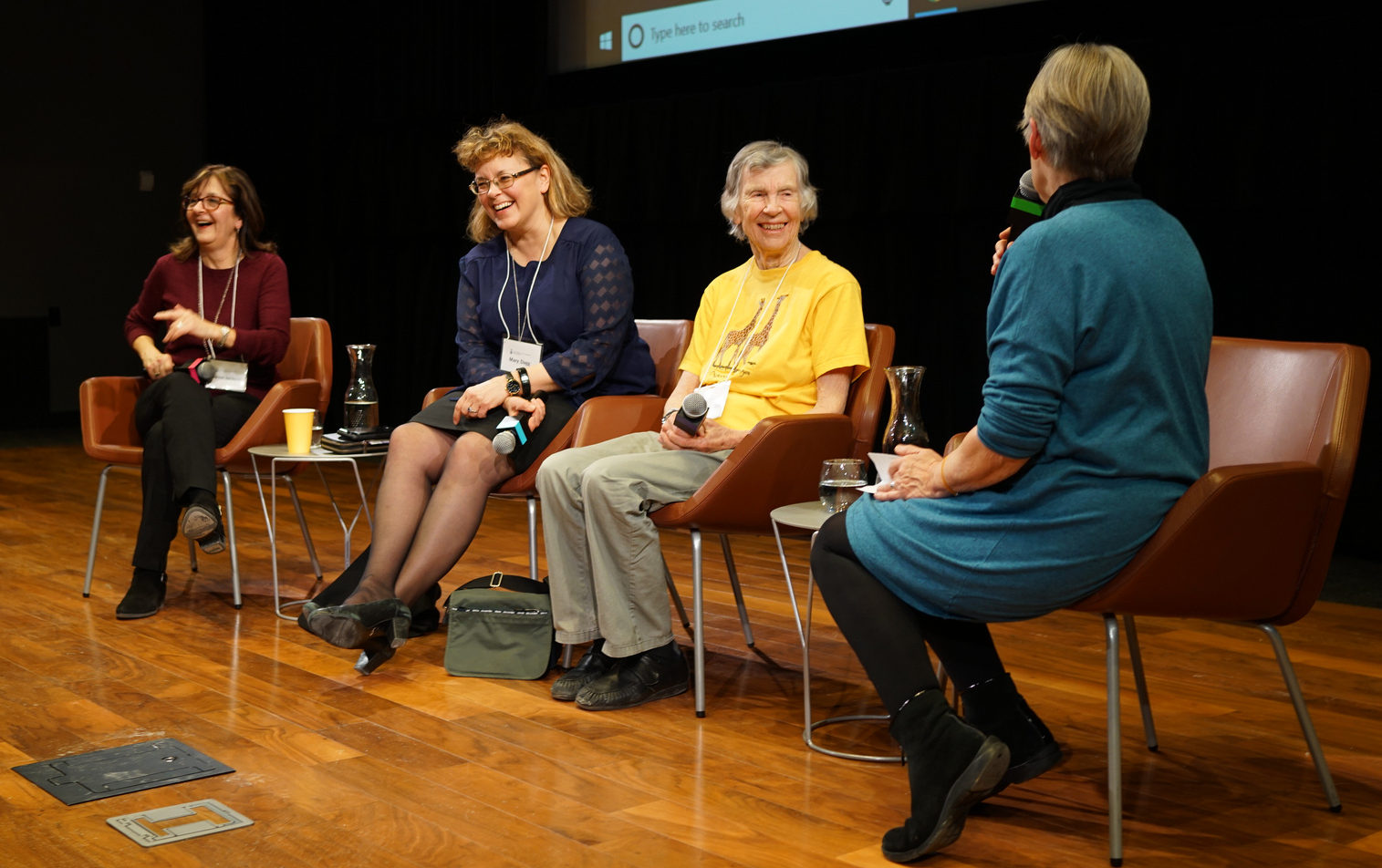The Woman Who Loves Giraffes: a story written for Innis College
For the college that founded the University of Toronto’s Environmental and Gender Studies programs, and today houses the university’s Cinema Studies department, there was perhaps no better venue for last month’s screening of The Woman Who Loves Giraffes than Innis College — not to mention the film itself is centred on the life of Harold Innis’s youngest daughter, Anne Innis Daag.
On January 24, in front of a full house at Town Hall, Alison Reid’s 2018 documentary was presented for a final time before it hits American distribution and the festival circuit in the coming months. Following the screening, the film’s director, Alison Reid, producer, Joanne Jackson, as well as Anne herself and her daughter, Mary, were all on hand to take the audience’s eager questions.
At risk of making a reductionist argument, The Woman Who Loves Giraffes, is truly an embodiment of Innis College’s historical component parts.
For starters, the forthcoming film begins by focusing on the events of Anne’s life following the death of Harold Innis. The film commences after Anne’s completion of her undergraduate degree at the University of Toronto, at which point she set off on a solo trip to rural South Africa — an adventure as equally unfathomable in today’s world of extreme concerns over personal safety, as it was in the world prior to smart phones and satellite navigation.
The movie follows Anne’s adventure in South Africa, where she sought to study giraffes in the wild, something groundbreaking at a time when biology consisted almost exclusively of dissecting dead specimens. From when Anne’s car (nicknamed Camelo after the scientific name for ‘giraffe’) breaks down, forcing her to walk through a foreign jungle in the dead of night, to her insistence that her black passengers ride up front with her in apartheid South Africa, the film is filled with as many scenes about biology as about Anne’s own personality.

Yet, a central theme of the movie — conservation — is also not to be missed. Indeed, Anne is to giraffes what the more famous Jane Goodall is to chimpanzees – a comparison I take it, Anne, who actually began studying animal behaviour prior to Goodall, is not fond of. As the film retraces with Anne her travels through South Africa, the audience and the scientist herself are horrified to learn of the effect deforestation and urban sprawl has had on Africa’s once abundant giraffe population. The long-necked creatures have become increasingly difficult to spot among the safari as portrayed through the fact local school children in the town closest to where Anne stayed tell the filmmakers they have never seen a giraffe in the wild.
A theme of feminist struggle also plays a central role in both Anne’s life, and in the plot of the film. Anne’s career, which is now only emerging from obscurity outside of the giraffe community (in which her book is elementary reading), was essentially derailed by the patriarchal academic system of her time. Despite being a popular academic in her field, and highly respected and widely published biologist, Anne was never granted tenure at the University of Guelph — a decision which not only kept the talented Dagg from teaching and producing additional scientific knowledge, but from returning to Africa to study her favourite mammal. Indeed, any viewer of the film cannot help but feel impassioned on Anne’s behalf and invigorated to challenge oppression. The movie closes with footage of the 86-year-old Dagg, participating in the Women’s March on Washington two years ago.
The Woman Who Loves Giraffes is a testament to the genre of documentary film. The film’s candid presentation of Anne, in her often quintessential giraffe-yellow t-shirt, presents the themes of feminism and conservation in a remarkably personal way. Furthermore, the director’s choice to overlay clippings of personal letters and footage from Anne’s original journey to Africa, with her recent return almost 60 years later, emphasizes the film’s dramatic coming of age narrative.
For those privileged enough to watch The Woman Who Loves Giraffes with Anne herself at Town Hall last month, the movie left a truly inspiring mark upon the hearts of all those in the audience. For those interested in Innis’s history and lovers of documentary films or animals alike, this film is simply a must-see.
